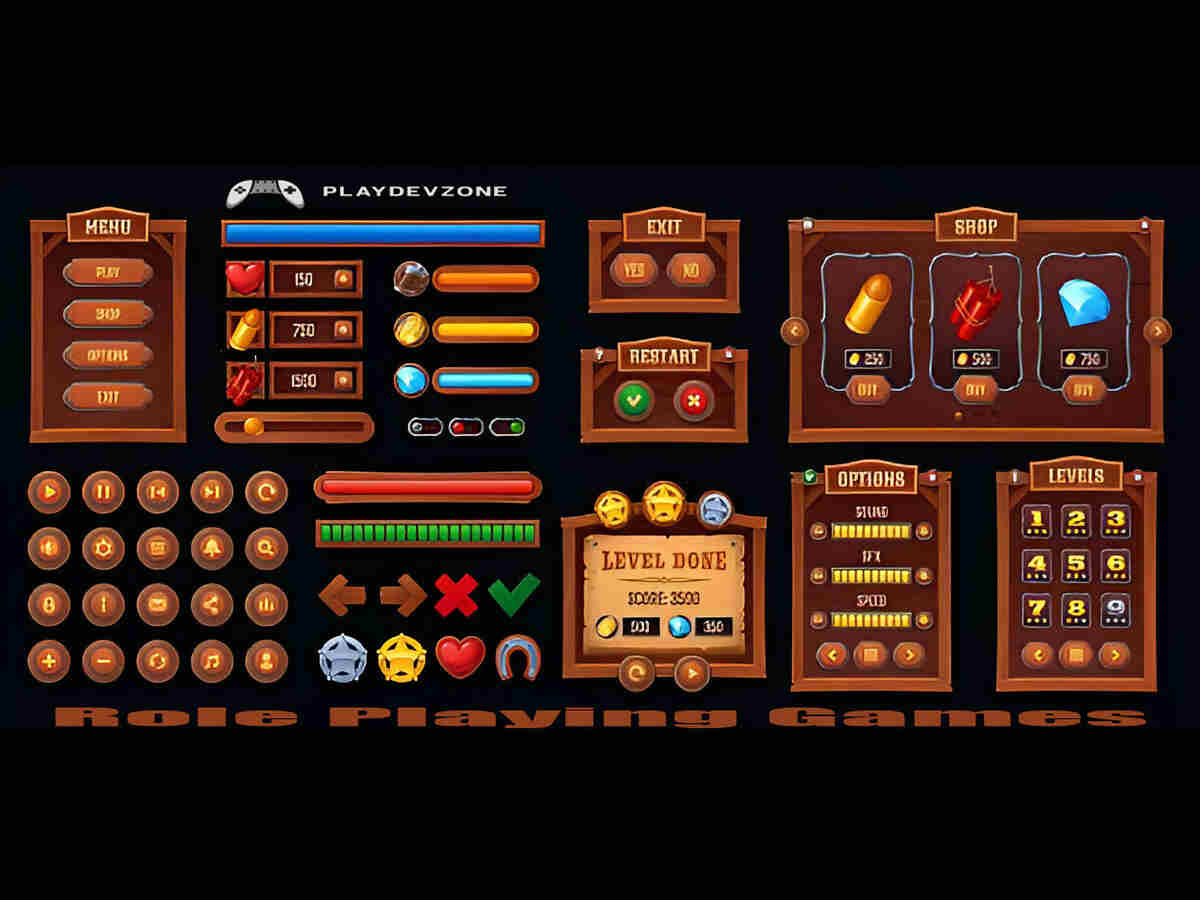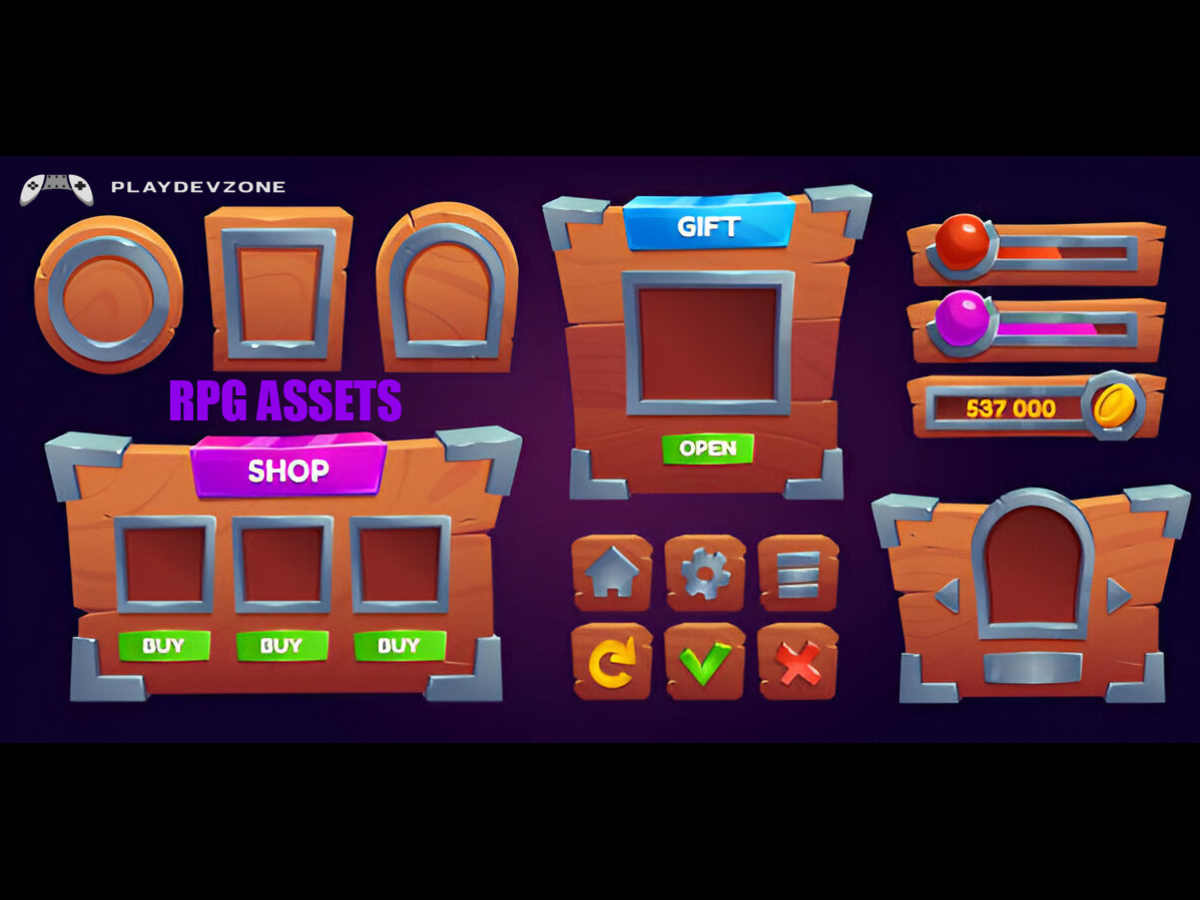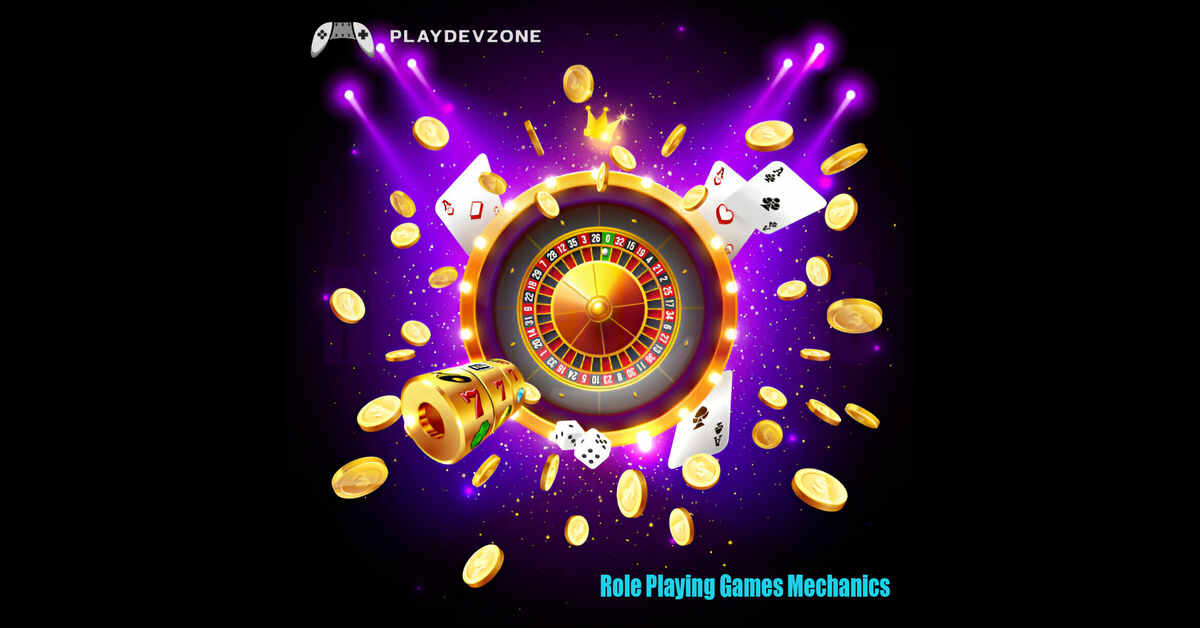Introduction
When it comes to building unforgettable gaming adventures, few elements are as crucial as RPG mechanics.
From intricate skill trees and turn-based combat systems to immersive dialogue choices and character progression, these mechanics are the backbone of role-playing games that captivate millions worldwide.
Whether you're a game developer, a dedicated gamer, or just curious about what makes RPGs so addictive, understanding the structure behind these systems is key.

In this guide, we'll break down the most popular RPG mechanics, explore how they influence gameplay, and examine their evolution across classic and modern titles.
With insights into both storytelling and game balance, you'll gain a new appreciation for the craft behind your favorite RPG experiences.
Additionally, we'll highlight examples from iconic franchises and indie hits alike, perfect for players, designers, and content creators looking to elevate their game knowledge.
What Makes an RPG Game?
An RPG (Role-Playing Game) is defined by its immersive storytelling, character customization, and progression systems.
Players step into the shoes of a character or an entire party, making decisions that impact the game's narrative and world.
Core RPG mechanics include leveling up, skill trees, quests, inventory management, and turn-based or real-time combat.
These games often blend exploration with rich lore, encouraging players to shape their journey through thoughtful choices and strategic decisions.
Whether it's a fantasy epic or a sci-fi adventure, what truly defines an RPG is the ability to grow your character and influence the story.
From classics like Final Fantasy to modern titles like The Witcher 3, RPGs continue to evolve, delivering rich, personalized experiences for gamers worldwide.
Core Mechanics (Combat, Dialogue, Questing)
The foundation of every great RPG is built on essential gameplay systems combat, dialogue, and questing which together shape the player's immersive journey and overall experience.
Combat systems range from strategic turn-based battles to fast-paced real-time action, offering depth and challenge.
Dialogue choices allow players to shape their character's personality, influence outcomes, and build relationships within the game world.
Questing ties everything together, driving the narrative through main storylines and engaging side missions.
These mechanics not only enhance immersion but also provide meaningful player agency.
A well-designed RPG balances all three, creating a dynamic and rewarding gameplay loop.
Whether you're slaying monsters, making moral choices, or uncovering hidden lore, these elements are what keep players invested and coming back for more.
Setting Up a Simple RPG System in [Unity/Godot]
Creating a simple RPG system in Unity or Godot is an excellent way to learn game development and bring your storytelling ideas to life.
Start by defining key RPG elements like character stats (health, mana, strength), inventory, experience points (XP), and a basic level-up system.
In Unity, you can use C# scripts to manage stat progression and player interactions.
For Godot, GDScript provides a flexible approach to handling similar systems using nodes and scenes.
Add turn-based or real-time combat mechanics, simple dialogue trees, and a quest manager to tie everything together.
Even with basic assets, you can build a playable prototype that captures the core feel of an RPG.
Whether you're prototyping a game or learning the engine, this is an excellent foundation for deeper development.
Inventory & Stats Management
Inventory and stats management are critical components of any well-designed RPG, offering players control, customisation, and strategic depth.
A robust inventory system enables players to collect, equip, and manage items such as weapons, armour, potions, and key quest items.
Meanwhile, character stats such as health, stamina, strength, intelligence, and agility determine how a character performs in combat and interacts with the game world.
Balancing these elements enhances progression and rewards thoughtful decision-making.
Whether upgrading gear, allocating skill points, or managing limited resources, these mechanics create a meaningful loop of growth and challenge that fosters a sense of progression.
For developers, implementing an intuitive UI and scalable systems is essential for player satisfaction.
When done right, inventory and stats management elevate the RPG experience, keeping players engaged and invested in their characters.
Saving Game Progress
Saving game progress is a fundamental feature in any RPG, ensuring that players can return to their adventures without losing valuable time, achievements, or progress in the story.
Whether using manual save points, auto-save systems, or cloud-based storage, an effective save system enhances user experience and encourages longer gameplay sessions.
In modern game engines like Unity and Godot, developers can implement save functionality using JSON files, databases, or binary formats to store player stats, inventory, quest status, and world state.
A well-structured save system not only improves game stability but also increases player trust and satisfaction.
For mobile and cross-platform RPGs, syncing progress across devices is also a key factor.
In short, saving game progress isn't just a feature; it's a cornerstone of modern game design.
Tools and Assets for RPG Games
Developing a compelling RPG requires more than just creativity; it demands the right tools and assets to bring your game to life efficiently.
From game engines like Unity and Godot to specialized plugins for dialogue systems, inventory management, and quest tracking, these resources streamline development and enhance the overall gameplay experience.
Premium RPG assets, including detailed character sprites, atmospheric environment packs, immersive sound effects, and customizable UI templates, enable developers to build rich, engaging game worlds without having to design everything from scratch.

Tools like RPG Maker, Inklewriter, or Pixel Crushers' Dialogue System can significantly reduce development time while maintaining professional quality.
Whether you're an indie developer or part of a larger team, leveraging pre-built assets and tools allows you to focus more on storytelling, world-building, and refining gameplay mechanics.
The right resources can transform your RPG vision into a polished, playable experience.
Final Tips for Beginners
If you're just beginning your journey into RPG game development, start small and focus on mastering the core mechanics of combat, dialogue, inventory, and progression.
Choose a beginner-friendly engine like Unity or Godot, and take advantage of free tutorials and pre-made assets to accelerate development without compromising quality.
Divide your project into clear, achievable goals, and embrace the process of prototyping and refining your ideas through iteration.
Keep your game design simple at first; complexity can come later.
Test your builds often and gather feedback early to catch issues before they grow.
Most importantly, stay consistent, be patient, and treat every setback as a learning opportunity.
Game development is a long-term process, but with persistence and the right mindset, you'll turn your RPG ideas into reality.
FAQ (Frequently Asked Questions)
What are RPG game mechanics?
RPG game mechanics are the foundational systems that define how role-playing games function and how players interact with the game world.
Familiar mechanics include character progression, combat systems, dialogue choices, inventory management, and questing.
These elements work together to create immersive, choice-driven experiences where players develop their characters, make impactful decisions, and explore rich narratives.
RPG mechanics often involve levelling up, unlocking skills, managing resources, and engaging in strategic battles.
Whether turn-based or real-time, these systems are designed to reward exploration, customisation, and story-driven gameplay.
Understanding and implementing strong RPG mechanics is essential for both game developers and players seeking meaningful, replayable adventures.
What are the 4 game mechanics?
The four core game mechanics often found across many game genres, including RPGs, are combat, progression, exploration, and interaction.
- Combat involves the battle systems, whether turn-based, real-time, or strategic, that challenge players and create a sense of tension and excitement.
- Progression refers to how players grow through levelling up, gaining experience, and unlocking new abilities or equipment.
- Exploration drives players to discover new environments, secrets, and lore within the game world.
- Interaction includes dialogue systems, decision-making, and how players affect or influence the world and characters around them.
When combined effectively, these mechanics form compelling and immersive gameplay cycles. Mastering how to balance and implement them is essential for creating a satisfying and well-rounded player experience.
What are the 4 roles in RPG?
In role-playing games (RPGs), the four leading roles are Tank, Healer, Damage Dealer (DPS), and Support.
Every role in an RPG team is crucial for overall success.
Tanks serve as the frontline defenders, drawing enemy attention and taking the brunt of incoming damage.
Their high durability and crowd control skills help manage threats and maintain team stability during intense battles.
By holding enemy focus, they allow other roles like Damage Dealers and Healers to perform their tasks effectively without interruption.
Healers play a critical role in maintaining a team's survival during combat.
They specialize in replenishing health, cleansing harmful effects, and ensuring teammates stay alive throughout challenging encounters.
By providing constant support and recovery, healers help sustain the group's momentum and prevent wipes during intense fights.
Damage Dealers (DPS) specialize in inflicting heavy damage to enemies quickly and efficiently. Lastly, Support characters enhance team performance through buffs, debuffs, and utility skills.
Understanding these roles is essential for building balanced teams and progressing in RPGs.
Whether you're playing solo or in multiplayer mode, knowing your role ensures strategic gameplay, making your RPG experience more immersive and rewarding.
Mastering these roles can significantly improve your success in both PvE and PvP scenarios.
What is an RPG system?
What are the three pillars of RPG?
The three pillars of RPG (Role-Playing Games) are Exploration, Combat, and Role-Playing, each offering a unique aspect of immersive gameplay.
Exploration allows players to discover new locations, uncover secrets, and interact with the game world.
Combat involves strategic battles, character abilities, and teamwork to defeat enemies and progress.
Role-playing focuses on character development, decision-making, dialogue choices, and narrative immersion, allowing players to shape their story.
Together, these pillars create a balanced and engaging RPG experience, blending action, strategy, and storytelling.
Whether in tabletop RPGs or video games, understanding these pillars helps players dive deeper into the game and enjoy a richer adventure.
A strong RPG thrives when all three pillars work in harmony, keeping gameplay dynamic and rewarding.
Top 5 RPG Mechanics You Should Add to Your Game
Creating an engaging role-playing game (RPG) requires more than just a compelling story; it needs the proper mechanics to keep players hooked.
Here are the top 5 RPG mechanics you should consider adding to your game for a richer, more immersive experience:
Character Progression System
A robust leveling system keeps players invested. Offer skill trees, stats customization, and class upgrades to let players tailor their characters to their playstyle.
Decision-Based Narrative
Incorporate branching dialogue and choices that impact the storyline. Player-driven decisions increase replay value and deepen emotional engagement.
Turn-Based or Real-Time Combat
Select a combat system that aligns with the rhythm and flow of your game to ensure a seamless and engaging player experience. Add tactical elements like status effects, combos, and enemy weaknesses to enhance strategy.
Loot and Crafting System
Reward exploration with unique loot. Allow players to craft weapons, armor, or items, giving them a sense of ownership and progression.
Morality or Reputation System
Introduce consequences for player actions. A morality system can influence NPC behavior toward the player and shape the game's overall storyline, leading to different outcomes based on the choices made throughout the journey.
Implementing these RPG mechanics can significantly improve player retention, enhance storytelling, and make your game stand out in a competitive market.
No matter if you're building a sprawling fantasy world or a high-tech sci-fi universe, incorporating these mechanics helps craft a rich, immersive, and unforgettable gameplay experience.
Conclusion
Mastering RPG mechanics is essential for anyone looking to elevate their role-playing game experience.
These mechanics, ranging from character progression, skill trees, inventory systems, to combat and decision-making, form the foundation of any successful RPG.
Whether you're exploring open worlds, engaging in tactical battles, or shaping stories through choices, understanding these systems allows for deeper immersion and more strategic gameplay.
From beginners to seasoned gamers, knowing how RPG mechanics work can enhance enjoyment, build stronger characters, and unlock hidden potential within the game.
As RPGs continue to evolve, staying informed about the latest mechanics ensures you're always ahead in the game.

